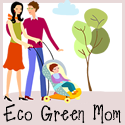
Why Go Green?
According to GreenBabies.com "We were impressed enough to base our business on organic cotton when we came to understand the firm conviction of the organic farmer, which is:
Soil is an entire ecosystem of it's own, filled with diverse living organisms that work in a harmonious cooperative that allows crops to grow. It is not dry, dead dirt that must be sprayed with toxic petroleum derived chemicals in order to be forced to produce commodities for sale and consumption with no thought for the lasting destruction left behind.
In the early 1990's this way of thought was sweeping through the cotton fields of California and the high plains of Texas. Third and forth generation farmers, whose families depended on the crop for their livelihood, were converting back to organic, to the methods their grandfathers and great grandfathers used, because of a deep love of the land and a belief that it was their responsibility to future generations.
This is the noble, natural start for the organic fibers that wind up on our babies backs!
Where does it come from?
Who made it?
Who touched it?
Under what conditions?
What will happen to it when I'm done?
Big ad agencies get paid a lot of money to help us FORGET to ask these questions!
BUT IT IS IMPORTANT! How you feel about things! Your values and beliefs! Where your money goes, what happens to the planet! The quality of things, the intention behind the invention! What your baby uses and smells and touches!
These are some of the things we've learned about organic cotton and why we feel it's an important choice:
More energy is now used to produce synthetic fertilizers than to till, cultivate and harvest all the crops in the U.S.
Conventional cotton occupies only 3% of the world's farmland, but uses 25% of the world's chemical pesticides and fertilizers.
In the U.S. alone, it's estimated that 800 million pounds of pesticides will be used on cotton this year!
Some of the chemical used on conventional cotton include the infamous defoliant Paraquat and insecticides like Parathion which is 60 times more toxic that DDT!
With organic farming, crops are rotated to protect the soil and farmers use compost and naturally derived mineral and plant products for fertilizer.











